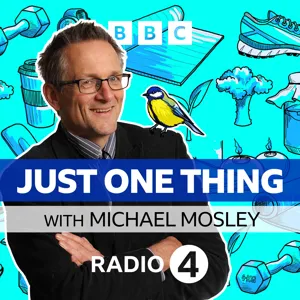In the UK, one in 14 people over 65 will develop dementia, with that figure rising to one in six once we’re over 80. It’s fair to say it’s the disease many people fear the most. But this podcast makes it clear that cognitive decline is not a natural or inevitable part of ageing. During the course of this conversation, returning guest Dr Tommy Wood outlines plenty of simple, enjoyable things that we can all start doing right now to improve our brain health and stave off age-related dementia.
Dr Tommy Wood is Assistant Professor of Pediatrics and Neuroscience at the University of Washington, US. He holds a degree in biochemistry from Cambridge, a medical degree from Oxford, achieved his PhD in physiology and neuroscience in Oslo, and has published papers and lectured across the globe. It’s fair to say that when it comes to brain health and longevity, he knows his stuff.
We kick off our conversation with the empowering news that we can resist declining brain function simply by challenging ourselves more. We can make new cells, new connections and change the structure around them, harnessing the neuroplasticity of the brain. And it doesn’t matter if we’re 28 or 80, he says. MRI scans prove the brain can adapt at any age.
Tommy explains the importance of rest, for the brain to consolidate all its new pathways, and nutrition to provide the fuel it needs to function well and grow. We talk about the role of B vitamins and omega-3 fatty acids for brain development, and the fact there’s no one-size-fits-all when it comes to optimum diet.
We also talk about the similarity between training your muscles and training your brain. And the research conclusively shows that the more muscle mass you have, and the more you move it, the lower your risk of cognitive decline. Tommy talks us through the types of exercises and the number of reps we need to do to gain muscle and brain benefits. And it's probably less than you think.
We also cover the surprising value of video games, the importance of social connection, and why going to dance classes might just be the best thing you can do for your brain and body. This is a fantastic episode, jam packed with life-changing practical information. I hope you enjoy listening.
Support the podcast and enjoy Ad-Free episodes. Try FREE for 7 days on Apple Podcasts https://apple.co/feelbetterlivemore. For other podcast platforms go to https://fblm.supercast.com.
Thanks to our sponsors:
https://www.vivobarefoot.com/livemore
https://www.athleticgreens.com/livemore
Order Dr Chatterjee's latest book Happy Mind, Happy Life: UK version: https://amzn.to/304opgJ, US & Canada version: https://amzn.to/3DRxjgp
Show notes https://drchatterjee.com/316
DISCLAIMER: The content in the podcast and on this webpage is not intended to be a substitute for professional medical advice, diagnosis, or treatment. Always seek the advice of your doctor or qualified healthcare provider. Never disregard professional medical advice or delay in seeking it because of something you have heard on the podcast or on my website.
Hosted on Acast. See acast.com/privacy for more information.










